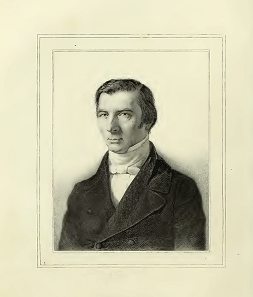Liberty Matters
The Deeply Read Literary Satirist and Parodist: to “purgandi” or to “pillandi?

Besides using puns and wordplay, Bastiat's humorous style is further displayed in a manner that might escape the modern or unsophisticated reader: through his parodies of the plays of Molière. Bastiat was deeply read in the French classics, such as works of Molière and La Fontaine, and he refers to them repeatedly in his writing. But what escapes the modern reader (and also sometimes the FEE translator, unfortunately) is the way Bastiat changes key words in the passages he quotes to refer to contemporary political events and to make his economic points. This would not have escaped his readers in 1847, but it is much harder for readers to spot now. An example occurs in ES2 11, "The Utopian" (17 January 1847),[50] where Bastiat parodies a passage from Molière's play The Misanthrope (1666), act I, scene 2, in which Alceste, the misanthrope, tries to tell Oronte, a foolish nobleman, that his verse is poorly written and worthless. In Bastiat's version the sovereign, presumably the king, offers the post of prime minister to someone, presumably Bastiat, and asks him what he would do to reform the country. Their conversations goes as follows:
"Let me suppose that you are a Minister and that consequently having a majority is not an obstacle for you; what would you do?" "I would seek to establish on which side justice was to be found." "And then?" "I would seek to establish on which side utility was to be found." "And next?" "I would seek to find out whether they were in harmony or in conflict with one another." "And if you found that they were not in harmony?" "I would say to King Philip:Take back your portfolio. The rhyme is not rich and the style outdated. But do you not see that that is much better Than the transactions whose common sense is just a murmur, And that honesty speaks these in its purest form?"
Here Bastiat replaces King Henry with King Louis Philippe, and Paris with portfolio, and the word colifichets (trinkets or baubles) with transactions and the word Passion with honesty. Only someone very familiar with Molière would be able to appreciate jokes like these.
However, the funniest and cleverest parody of Molière is Bastiat's parody of Molière's parody of a 17th-century oath of induction for new doctors who wish to enter the medical profession (ES2 9, "Theft by Subsidy" [January 1846].)[51] Molière wrote his parody because he hated 17th-century doctors who liked to bleed their patients; Bastiat wrote his because he hated tax-collectors and customs officials who liked to interfere with trade and, as it were, bleed commerce of its profits. At the end of Molière's play Le malade imaginaire (The Imaginary Invalid, or The Hypochondriac, 1673) are a series of "Interludes," which are mostly in Latin (or rather "dog Latin" which was a Frenchified schoolboy form of Latin). In the "Third Interlude" there is an elaborate dance of doctors and apothecaries (and would-be doctors) in which a new doctor is inducted into the medical fraternity. The oath sworn by the new doctor (Bachelierus) is as follows (with Arthur Goddard's excellent translation in the FEE edition, p. 194):
Don tibi et concedo (I give and grant you) Virtutem et puissanciam (Power and authority to) Medicandi, (Practice medicine) Purgandi, (Purge) Seignandi, (Bleed) Perçandi, (Stab) Taillandi, (Hack) Coupandi, (Slash) Et occidendi (and Kill) Impune per total terram. (With impunity throughout the whole world)
Bastiat does not quote Molière's Latin but writes his own pseudo-Latin, which he does not translate into French, since he would have assumed his readers would know what he was parodying and what Bastiat's version of it meant. In his parody Bastiat is suggesting that government officials, tax collectors, and customs officials were thieves who did more harm to the economy than good, and he believes the following would be a suitable oath to use when inducting new officials into government service:
Dono tibi et concedo [I give to you and I grant] Virtutem et puissantiam [virtue and power] Volandi [to steal] Pillandi [to plunder] Derobandi [to filch] Filoutandi [to swindle] Et escroquandi [to defraud] Impune per totam istam [At will, along this whole] Viam [road]
The level of knowledge and literary sophistication needed to understand this is quite considerable, and Bastiat seems to be able to write articles like this quickly and at will during his period of greatest output and creativity between 1847 and mid-1850. All this went completely over my head when I first read it. It took plowing through several volumes of Molière for me to more fully appreciate what he had done and why.
Endnotes
[50] Frédéric Bastiat, Economic Sophisms, trans. Arthur Goddard, introduction by Henry Hazlitt (Irvington-on-Hudson: Foundation for Economic Education, 1996). Chapter: Second Series, Chapter 11: The Utopian. </title/276/23396>.
[51] Frédéric Bastiat, Economic Sophisms, trans. Arthur Goddard, introduction by Henry Hazlitt (Irvington-on-Hudson: Foundation for Economic Education, 1996). Second Series, Chapter 9: Robbery by Subsidy. </title/276/23392>.
Copyright and Fair Use Statement
“Liberty Matters” is the copyright of Liberty Fund, Inc. This material is put on line to further the educational goals of Liberty Fund, Inc. These essays and responses may be quoted and otherwise used under “fair use” provisions for educational and academic purposes. To reprint these essays in course booklets requires the prior permission of Liberty Fund, Inc. Please contact oll@libertyfund.org if you have any questions.